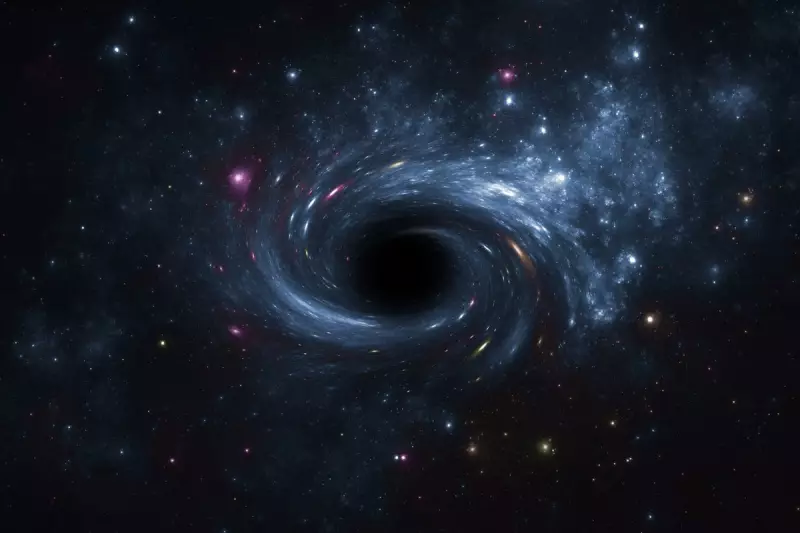
Astronomers have made a groundbreaking discovery, identifying one of the largest black holes ever detected. This cosmic behemoth boasts a staggering mass 30 billion times that of our Sun, making it a true giant in the universe.
The discovery was made possible through the innovative use of gravitational lensing, a phenomenon where the gravitational field of a massive object bends and magnifies light from objects behind it. This technique allowed researchers to observe the black hole with unprecedented clarity.
How Gravitational Lensing Unveiled the Black Hole
Gravitational lensing occurs when a massive celestial object, such as a galaxy or black hole, warps the fabric of space-time. This distortion acts like a cosmic magnifying glass, amplifying light from distant objects behind it. In this case, the black hole's immense gravity bent light from a background galaxy, revealing its presence.
Dr. James Nightingale, an astrophysicist involved in the study, described the finding as "extraordinary." He explained, "This black hole is among the most massive ever observed. Its discovery pushes the boundaries of our understanding of how these cosmic giants form and evolve."
What Makes This Black Hole Unique?
This newly discovered black hole stands out not only for its sheer size but also for its location. Unlike many supermassive black holes found at the centers of galaxies, this one appears to be more isolated, raising intriguing questions about its origins.
Scientists believe studying this black hole could provide crucial insights into the early universe and the formation of such massive structures. "It challenges existing theories about black hole growth," said Dr. Nightingale. "We're eager to learn more about how it became so enormous."
Implications for Astronomy
The discovery has significant implications for astrophysics. It demonstrates the power of gravitational lensing as a tool for uncovering hidden cosmic phenomena. Researchers hope to apply this technique to find other elusive black holes and dark matter structures.
As technology advances, astronomers anticipate even more remarkable discoveries. "This is just the beginning," Dr. Nightingale added. "The universe continues to surprise us with its mysteries."





